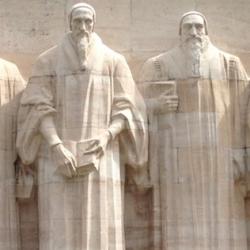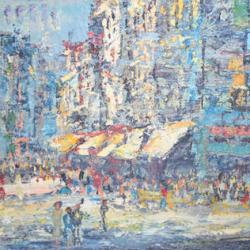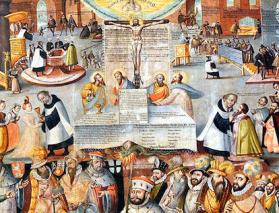Separation of church and state, religion and politics, is not “sufficient unto itself,” argues Pierre Manent (Beyond Radical Secularism). After all, he points out, citizens are believers, believers citizens, and they don’t cease to be one when they take up the role of the other. Separation “suggests the dangerously clear figure of a reciprocal exteriority, as a plan divided by a line, or a three-dimension figure divided by a plane.” It is more realistic to speak of a “reciprocal envelopment of the political form and the regime,” in France, the secular state and a nation “marked” by Christianity” (62).
It makes no historical sense to say that the separation of church and state is a fundamental truth of Christianity. If it were, why did it take so long for Christians to discover this fundamental truth. The real political contribution of Christianity is not the separation of church and state. Rather Europeans “understood this unprecedented political and religious project through an unprecedented political form: to govern oneself through obedience to God’s benevolent intention, to seek ceaselessly to combine the pride of the citizen, or more generally of the acting human being, and the humility of the Christian.”
In short, “what distinguishes Europe is not the separation between religion and politics, but rather the pursuit of an ever more intimate union between them” (64-5).
“Separation” rhetoric proves useful, though. Religion and politics “designate the two great stakes that we have become incapable of confronting in order to exclude them from our consideration.” It’s an avoidance tactice: “Separation is a convenient shelter or alibi for Europeans who have refused for generations to pose the questions of politics and of religion without which Europe’s life loses all meaning” (66).















